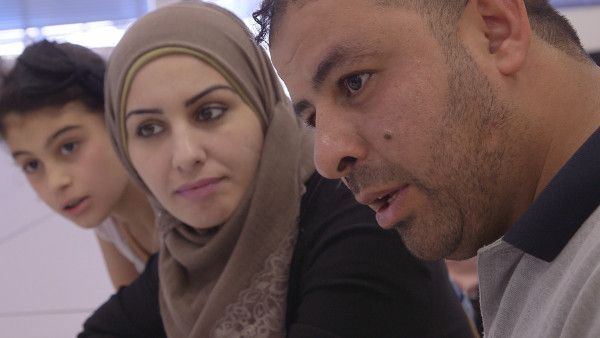Eye For Film >> Movies >> This is Home (2018) Film Review
This is Home
Reviewed by: Amber Wilkinson

When we think about refugees, it's easy to imagine people preparing to flee or in the process of doing so, but Alexandra Shiva's latest documentary reminds us that is only part of the story. Even when those in need have made it to a safe haven - in the case of This Is Home, Baltimore, Maryland - they find themselves on another difficult journey to begin a new life and assimilate themselves into a new community.
In Baltimore, refugees receive help for the first eight months, during which they must learn English, get a job and find a way of supporting themselves before the system reaches its cut-off point. Shiva follows four families as they undergo the process, showing them on arrival and then dropping back in on their lives at three months, six months and the end of the process, the passage of time elegantly conveyed by timelapse photography.

She immerses us in the experience, showing how the families have to cope with cultural differences - one man says his wife will work "over my dead body" - at the same time as experiencing uncertainty about the future, particularly after President Trump institutes his ban on new refugees coming to the country. While not overtly political, we see first-hand how this means families who thought they were going to be followed by loved ones find themselves caught in limbo.
When one of them describes the new situation as "very intense" it seems almost like an understatement, as we can see the extreme stress being faced, particularly by the parents. "I'm the kid and they're the adults," says one mum as she talks about struggling with the new language.
It is Shiva's lightness of touch that sells the film. Just as she lets the politics of the situation show through by examining their impact, her unobtrusive, observational style also helps the families feel free to recount their stories of trauma. She also asks us to consider the treatment of refugees by others in the community, for good and ill. One woman finds herself harassed on the bus for wearing a hijab (she switches to an American flag after that, which makes her feel safer), but also experiences a lot of kindness from a new-found friend.
Although this is entirely conventional in terms of direction making it better suited to television than a big screen, it is nonetheless an accessible and heartfelt crowdpleaser that gently but firmly makes its point. A fact underscored by its Audience Award win at Sundance Film Festival.
Reviewed on: 25 Jan 2018
















